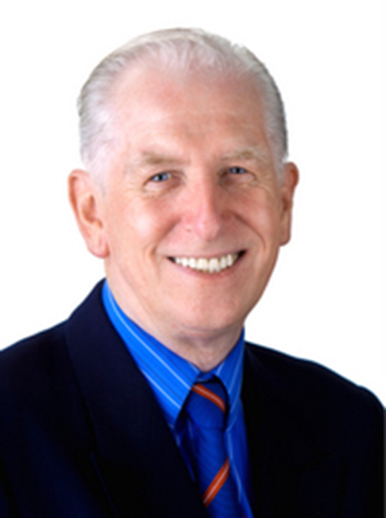by Dr Charles J Margerison
Psychologist
I have studied the life stories of over 500 amazing scientists, doctors, writers, musicians, explorers, engineers, and entrepreneurs, to understand key factors of achievement and success.
Some created inventions like the steam engine, or computer technology. Other amazing people produced outstanding art. Scientists and doctors found cures for dreadful diseases. Explorers focussed on making discoveries. Business entrepreneurs developed product innovations that led to employment and improved standards of living. Each one of them made outstanding contributions to improve our lives in many different ways.
Inspiration was an important factor in their success. It is a factor that we all need if we are to develop and improve. How can we become inspired? In this article, you will gain key learning points based on the research into the lives of amazing achievers.

You can tell from conversation if someone is inspired. They will say something like, ‘I have been reading about an exciting idea.’
When you describe your own work and interests, the person you are talking to may say, ‘I like that. How can I be involved?’
You can also tell if someone is inspired by watching their behaviour. People who volunteer are typically good examples. Although they are not paid, they spend long hours supporting the cause in which they believe, because they are inspired by the purpose.
Those who invest their time into hobbies are inspired. They enjoy the challenges that their hobby gives them. Likewise, people who choose to aspire at sport can be inspired by watching and learning from other sportspeople.
Inspiration is linked to emotion. We can be inspired to develop ideas and action when we are emotionally involved in a situation. The more we are affected by issues, the more likely we are to invest time, money and effort, in particular areas of activity.
You will hear people talk about their life and why they focus on certain areas of activity. Often, they will refer to a meeting, or an event, and say, ‘I was really impressed with what I heard and saw. It made me want to find out more. That is how I started my career as a scientist /musician/engineer etc.’
So, inspiration is linked to perception. That is, a person hears or sees something that they feel will make their life more interesting. In effect, they identify with the activity and it becomes part of who they are.
Once inspired, a person will become engaged and motivated in various way. They will spend more time searching for information about their chosen area. They will explore and experiment more and are likely to spend more money on relevant books, materials, and resources.
In my discussions with business executives, teachers, doctors, engineers, and other professionals I have noted, time after time, how they talk with enthusiasm about the people who have inspired them. Therefore, I decided to study the lives of amazing people. As a result, I learned a lot about inspiration. The key points arising can guide your own activities.
 Michael Faraday conducted experiments and discovered a source of electricity in 1832. He also made many other breakthrough discoveries in magnetism and developed the laws of electrolysis. He had not attended or received a university qualification. On the contrary, he had worked in a bookshop and during his spare time, he educated himself by reading. Later, he worked on practical aspects of science with a leading scientist called Humphry Davy. After that, Faraday developed his own approach to convert his inspirational insights into reality.
Michael Faraday conducted experiments and discovered a source of electricity in 1832. He also made many other breakthrough discoveries in magnetism and developed the laws of electrolysis. He had not attended or received a university qualification. On the contrary, he had worked in a bookshop and during his spare time, he educated himself by reading. Later, he worked on practical aspects of science with a leading scientist called Humphry Davy. After that, Faraday developed his own approach to convert his inspirational insights into reality.
Marie Curie was also inspired to do scientific work. She is the only woman to win two Nobel prizes in two different scientific disciplines. In addition, she was inspired to help soldiers in the First World War. She took her X ray equipment to the battlefields to assess injuries and prescribe treatments.
 Music can raise of lower our energy. Beethoven, the great composer, was inspired to compose masterpieces such as Fur Elise, and Moonlight Sonata. At a relatively young age, he became profoundly deaf. But, he could still hear beautiful music in his head and which gave rise to some questions for him. Was the music he was hearing just a version of what he had seen in the manuscripts of Mozart? He was inspired by his predecessors’ great works. The important point is that inspiration is the start of innovation. That is what distinguishes amazing people from those who just imitate.
Music can raise of lower our energy. Beethoven, the great composer, was inspired to compose masterpieces such as Fur Elise, and Moonlight Sonata. At a relatively young age, he became profoundly deaf. But, he could still hear beautiful music in his head and which gave rise to some questions for him. Was the music he was hearing just a version of what he had seen in the manuscripts of Mozart? He was inspired by his predecessors’ great works. The important point is that inspiration is the start of innovation. That is what distinguishes amazing people from those who just imitate.
Thomas Telford is renowned amongst engineers for his outstanding designs and constructions during the period from 1780 to 1830, which still stand today. He came from a poor family and had no formal engineering education. But, he was inspired by the challenges that came his way. The list of his achievements, in an age when there was no electricity, no engines to lift heavy materials, and no computers, is amazing. He constructed the Menai Bridge in North Wales, the Ellesmere Canal in England, the harbour-works at Aberdeen and the Caledonian Canal in Scotland, plus other major works.
 Breakthroughs in medicine have followed disease and disasters. Brave scientists and doctors have put themselves at risk to discover the cause of infection and death. Many were inspired by their personal experience. Ignaz Semmelweis watched aghast, as young mothers in his care died in childbirth, from puerperal fever. However, he noted women who gave birth at home or in the streets had less infection and a higher rate of survival. He asked his doctors to wash their hands in carbolic acid before attending a birth. The death rates declined. Doctors in many other hospitals, instead of being inspired, ignored his findings. Therefore, we learn that the adoption of innovation needs education, not just inspiration.
Breakthroughs in medicine have followed disease and disasters. Brave scientists and doctors have put themselves at risk to discover the cause of infection and death. Many were inspired by their personal experience. Ignaz Semmelweis watched aghast, as young mothers in his care died in childbirth, from puerperal fever. However, he noted women who gave birth at home or in the streets had less infection and a higher rate of survival. He asked his doctors to wash their hands in carbolic acid before attending a birth. The death rates declined. Doctors in many other hospitals, instead of being inspired, ignored his findings. Therefore, we learn that the adoption of innovation needs education, not just inspiration.
 Persecution has led to inspiration. Minorities have found new places to express their political and or religious beliefs. An example, of both are the ‘pilgrims’ who set forth from England in 1620 to establish a new life in North America. They took enormous risks, by sailing in the boat called ‘The Mayflower’. They arrived in an unknown land where they set up a society based on their beliefs. The history of what became New England, as they called their area, was changed forever. Names of the founders like Brewster and Bradford, are now engrained in USA history.
Persecution has led to inspiration. Minorities have found new places to express their political and or religious beliefs. An example, of both are the ‘pilgrims’ who set forth from England in 1620 to establish a new life in North America. They took enormous risks, by sailing in the boat called ‘The Mayflower’. They arrived in an unknown land where they set up a society based on their beliefs. The history of what became New England, as they called their area, was changed forever. Names of the founders like Brewster and Bradford, are now engrained in USA history.
For many who enter the nursing profession, it is first and foremost a vocation. That is, they feel inspired to help others. Florence Nightingale and Mary Seacole are two examples of women who were inspired in different ways, to assist soldiers in the Crimean War during the 19th century. Many have since followed their footsteps, inspired by the examples they set. Likewise, Dr Barnardo was inspired to take action when he saw boys without homes. He decided to set up care facilities. This has now become the Barnardo’s charity, which is devoted to helping those in need.
 Charles Dickens wrote many novels, including Oliver Twist and Nicholas Nickleby, which reflect the terrible conditions faced by children during the 19th century. Dickens was inspired to write such works by his own experiences. His father was sent to prison for unpaid debts. Charles had to work in dreadful conditions to earn money for his family. So, inspiration to express views and change conditions can come from difficult situations.
Charles Dickens wrote many novels, including Oliver Twist and Nicholas Nickleby, which reflect the terrible conditions faced by children during the 19th century. Dickens was inspired to write such works by his own experiences. His father was sent to prison for unpaid debts. Charles had to work in dreadful conditions to earn money for his family. So, inspiration to express views and change conditions can come from difficult situations.
What can you do to improve your level of inspiration? Like the exemplars mentioned above, we can be inspired in different areas. You may be inspired to write a song. Another person may be inspired to design a medical innovation. You can be inspired to cook a new dish by observing someone else doing it. The important thing that we can learn from amazing people is – to act on the inspiration before it disappears.
Inspiration can emerge from imitation. Also, it comes and goes. It is important to build on it. As a result, your work like that of Mozart, may inspire another person as, for example, it did with Beethoven.
 Inspiration does not have to be a major breakthrough. People can be inspired by your positive can-do attitude and spirit. They can be inspired by your dedication in times of difficulty. Inspiration can come from a quotation, or just a supportive word.
Inspiration does not have to be a major breakthrough. People can be inspired by your positive can-do attitude and spirit. They can be inspired by your dedication in times of difficulty. Inspiration can come from a quotation, or just a supportive word.
Think of a time when someone inspired you. What did they do?
Think of a time when someone gave you a compliment. What did they say?
Positive feedback usually indicates that you inspired the other person to think again and continue on with their efforts.
Inspiration is a function of perception. When we are inspired we see things more clearly. In particular, inspiration increases when we have a purpose that we feel is important.
All of the 500 and more amazing people that I have studied were inspired. All of them found a purpose that guided their efforts in music, engineering, science, medicine, politics, art, business, nursing, and other career activities.
Inspiration is a key to self-development and a satisfying life. Find people who are doing things that you value. You will find inspiration in the way they work, as well as their outputs. Act on the inspiration and it will increase your wellbeing and self-esteem. Inspiration is all around. We need to catch it and spread it.

Dr Charles Margerison, President and founder of Amazing People Worldwide, is a Psychologist. He is also President of Amazing People Schools. Dr Margerison has consulted widely for major organizations in the fields of organizational and educational psychology. He was previously Professor of Management at Cranfield University, UK, and the University of Queensland, Australia. He founded Amazing People Worldwide in 2006 and is supported by a dedicated global team. He previously co-founded Emerald Publications, and Team Management Systems and has authored more than 30 books. Dr Charles is also the creator of ‘Can Do Kids Worldwide, a virtual music group that helps students to learn about countries and cultures through music. He has also developed Imagineland, for early learners. You can follow him on Linked in .
For more information, please email info@amazingpeopleworldwide.com
Websites:



Copyright © 2021. Amazing People Worldwide.
All Rights Reserved.
This site is protected by reCAPTCHA and the Google
Privacy Policy and Terms of Service apply.



